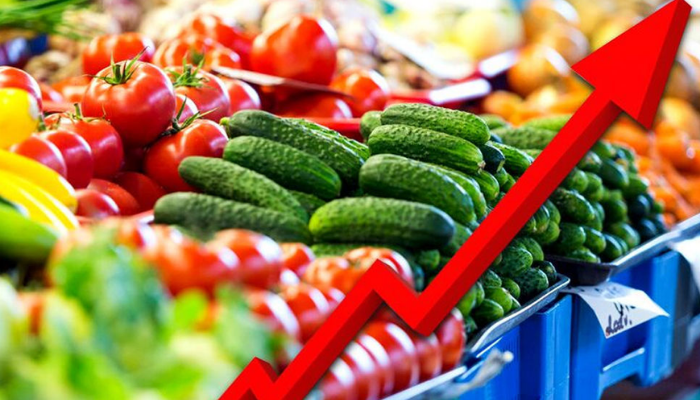Pandemic Triggers Rapid Food Inflation As Unemployment Remains At Great Depression Levels
Supermarket food prices surged during the pandemic as tens of millions of Americans lost their jobs.
According to the latest seasonally adjusted data by the Bureau of Economic Analysis (BEA), the virus pandemic has had a tremendous impact on food prices from February to June:
Meat and poultry prices jumped 11%, with beef prices surging 20%. Pork climbed by 8.5%, egg prices increased by 10%, and cereals and fresh vegetables were up more than 4%.
"The pandemic has caused a surge in demand for groceries as millions of Americans stay home and avoid eating out. While there's no significant shortage of food, disruptions in the supply chain have created scarcities and driven up prices," CNN Business noted.

Rapid food inflation comes at the worst possible time for the working poor, who were already struggling well before the virus-induced recession, with insurmountable debts, stuck in a renting society, and had very little savings to weather an economic downturn.
These folks have been thrown off a fiscal cliff just weeks ago. They were receiving a $600 per week stimulus check, but since the program ended in late July, their ability to buy food or pay bills has come to a standstill as politicians on Capitol Hill bicker about the next round of direct payments.
With inflation now around 1% and unemployment at Great Depression levels, the Federal Reserve is set to announce new commitments in September to ramp up inflation back to its 2% target.
If the Fed decides to ramp up inflation, possibly sending food, clothing, energy, and shelter prices higher, a larger portion of people's incomes, as we've explained, a quarter of all household income comes from the government (i.e. direct payments), would be used for survival instead of spending it on things like iPhones, Pelotons, Casper mattresses, and or Teslas.
As the depressionary storm continues to swirl above America, 30 million folks have already said they did not have enough to eat in late July, which was the highest level people going hungry since food bank lines emerged across the country in April/May.
Disclaimer: Copyright ©2009-2020 ZeroHedge.com/ABC Media, LTD; All Rights Reserved. Zero Hedge is intended for Mature Audiences. Familiarize yourself with our legal and use policies every time ...
more



The jumps in food prices stated are much less than what I see in my area for some of the items. So certainly it is a combination of shortage, inflation, and profit taking driving the increase.
Of course the fed is most anxious to protect their friends, even at the expense of a large population segment that has not much recourse available. So certainly some sort of depression will result, but for an unknown time, and not for everybody.
Perhaps this will be the level of misery that will provoke some serious changes in the basic power structure, or at least revise the priorities a bit. Certainly "the 1%" should see their world change a bit. I hope it would be through legal means without violence and bloodshed.